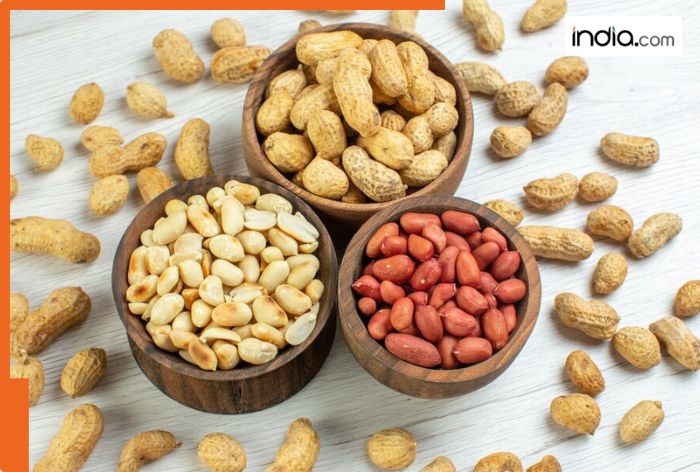Peanuts are supposed to be healthy snacks that offer health benefits on a platter. This is what can happen if you consume these delicacies regularly during the winter season.
The winter diet is all about intense indulgences, delicious dishes and more. It’s the season when street food and curry dishes become even tastier. However, it is important to keep your weight under control and lead a healthy lifestyle. In terms of dietary practices, healthy snacks are one way to go. Peanuts are considered snacks and offer a number of health benefits, especially when consumed regularly during the winter months. This is not only delicious but is also packed with nutrients that can help fight the winter chill.
6 benefits of eating peanuts in winter
- Increases energy levels: Winter often brings shorter days and colder temperatures, which can cause feelings of fatigue. Peanuts are an excellent source of energy due to their high content of healthy fats and proteins. A small handful of peanuts can provide a quick boost of energy, making them an ideal snack to combat winter lethargy. The combination of fats and proteins helps maintain energy levels throughout the day, keeping you active and alert.
- Supports heart health: Regular consumption of peanuts may contribute to better heart health. Peanuts are rich in monounsaturated fats, which are known to lower bad cholesterol levels and reduce the risk of heart disease. Additionally, peanuts contain antioxidants such as resveratrol, which can help improve blood flow and prevent inflammation. This is especially beneficial in winter, when high blood pressure can be a problem due to cold weather.
- Improves immune function: The winter months are famous for colds and flu. Peanuts are a good source of zinc, vitamin E and other essential nutrients that play a crucial role in supporting the immune system. Zinc, in particular, is vital for immune function and helps prevent infections.
- Helps digestion: Peanuts are high in dietary fiber, which supports healthy digestion. Regular fiber intake can help prevent constipation, a common problem during the winter when people may be less active and consume less water. Helps with bowel movements and contributes to a healthy gut microbiome.
- Nutrient dense These are rich in various vitamins and minerals. They are an excellent source of B vitamins, particularly niacin and folate, which are important for energy metabolism and cellular function. Peanuts also contain magnesium, which supports muscle and nerve function, making them a great addition to a physically active winter lifestyle.
- Weight control: Despite their calorie density, peanuts can help with weight management when consumed in moderation. The combination of healthy fats, protein and fiber helps promote feelings of satiety, reducing the likelihood of overeating. This can be especially helpful during the winter, when hearty, calorie-laden foods are more tempting.
These nutritional powerhouses are versatile and can be enjoyed in a variety of ways, whether as a snack, in salads, or in cooking. However, moderation is key, as peanuts are high in calories.
